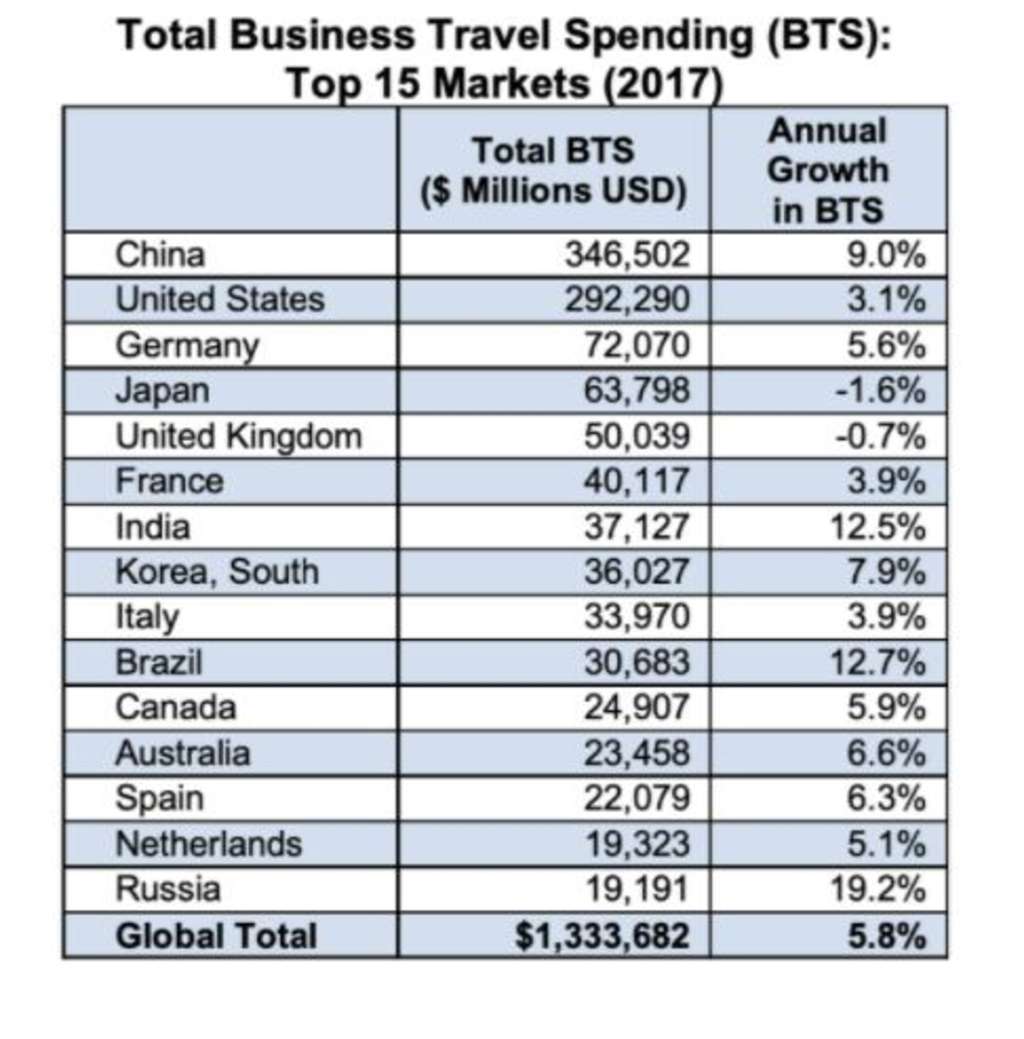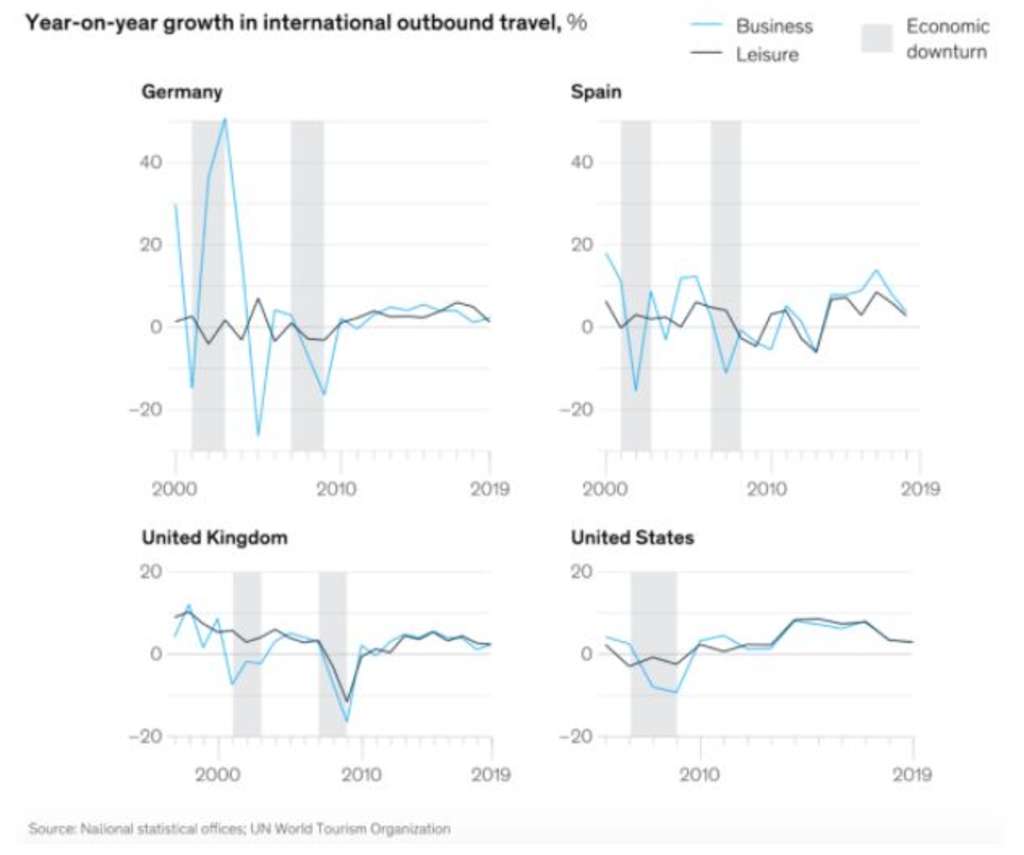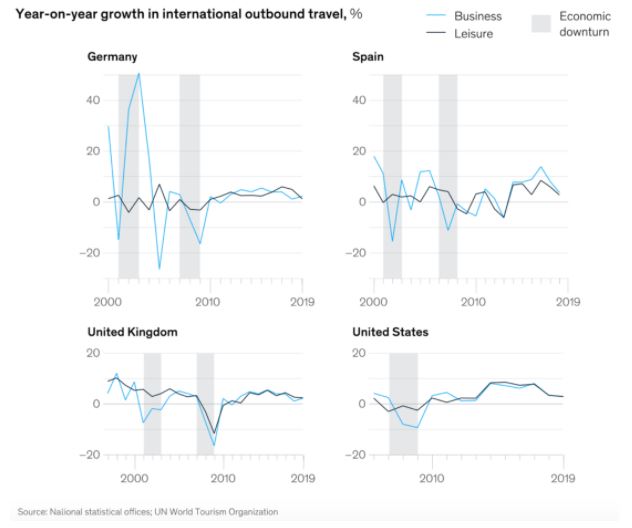The Rebound of Business Travel Post COVID-19
Since the COVID-19 pandemic outbreak at the start of this year, the world experienced national lockdown where business travel has ground to a halt. Business travellers are forced to move rapidly from face to face meetings and events to virtual platforms such as zoom and Microsoft Team and other apps that keep popping up. Entering Q4 2020, the pandemic remains, Mckinsey & Company research shows that the post COVID 19 recovery will be a long road ahead which will take at least years and that business travel will rebound at a slower pace in comparison to leisure travel.
According to the Global Business Travel Association's (GBTA) in April 2020, 99% of business travel by European companies have been cancelled or postponed. The business travel industry around the globe is anticipated to take a £655 billion revenue loss since March 2020, approximately 23% accounted mainly in Europe.
In 2018, business travel spending surpassed $1.4 trillion. Around 22% of travel and hospitality globally. The two largest markets are China and the United States at more than $290 billion each following by Germany (see below).
Experts anticipated that business travel may take between one to three years to resume. However, according to Forbes, 5-10% of business travel will never return due to let-down and insolvencies of companies that accounted for business travel. Susan Liechtenstein, Managing Partner at US-based consultancy firm DigiTravel forecasts that demand might take years to return to about 75% of 2018 levels by 2022. She claimed that "Business travellers may be expected to combine multiple meetings into one trip, especially given the likely increase in the cost of travel. Better safety and cleaning protocols will likely contribute to higher prices, especially if deep cleaning planes requires more time on the tarmac between flights. After an initial price shock, fares could rise by as much as 54%, according to estimates from airline industry group IATA".
Moreover, the graph below indicated that, after the economic downturns and other disruptions to travel pattern, business is more volatile and slower return than leisure travel is. As clearly shown, during the Financial crisis of 2007-2008, the international business travel from the USA decreased more than 8% while international leisure travel from the USA declined only 2%.
"We're all struggling a little bit to understand how quickly travel will recover, because there's just no precedent to something like the coronavirus pandemic," says Charuta Fadnis, senior vice-president of research at travel analytics firm Phocuswright. Recovery from past events like 9/11 or the global financial crisis generally took two to three years, but these events also did not entail the same months-long shutdown of virtually all global travel. Health concerns were not an issue in either event, making it even harder to predict how soon fliers may feel comfortable exposing themselves to strangers once again. "This crisis is really new, in terms of the magnitude of the impact,".
Regional and domestic travel will likely to resume before international travel. A further point raised by GBTA cited that in July 2020, companies are twice as possibly to have paused international travel as have paused domestic travel. International travel will take longer to return due to various reasons comprising of difficulty of government regulations, mandatory quarantines, and the unprecedented pace of swift-changing policies.
Industries like hotels that are dependent on travelling must evaluate the economics and react where needed. For instance, Hotel owners may choose not to operate all their facilities or amenities: spa, swimming pools. They should reassure guests with health and safety measures. Another option is to close the entire properties until demand returns.
In conclusion, The COVID-19 pandemic has led to new challenges to the world. The business travel industry is one of the worst affected sectors. As stated above, the business travel is expected to take longer to recover than leisure travel. We all know that business travel will never look the same, but it will resume gradually. Companies that are responsive and understand customer concerns will become the leaders among their sectors in the post-crisis recovery.
Korosh Farazad
Founder and Chairman of Farazad Group of Companies
Farazad Group Ltd.



